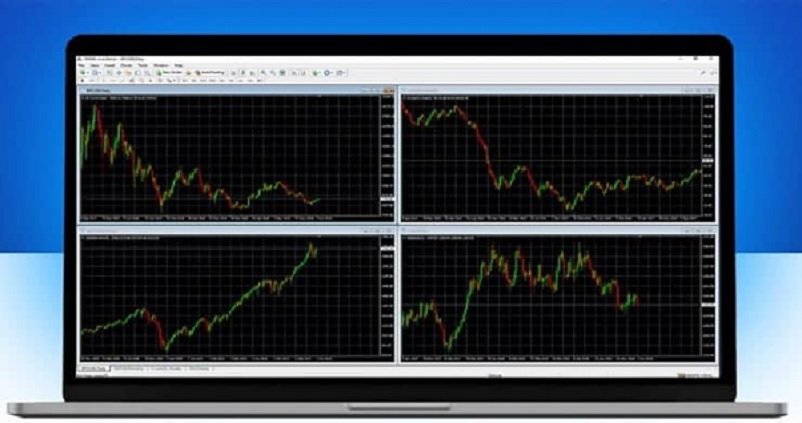Economy
How MT4 MAM Simplifies Trading for Multiple Accounts

Crucially important in financial markets, the MT4 Multi-Account Manager (MAM) application provides a simplified approach for effectively managing many accounts. MT4 MAM streamlines processes, therefore freeing users to concentrate on trading techniques and market research instead of administrative chores. Designed for professional traders and asset managers. Discover more about this powerful tool with AvaTrade’s detailed guide on the multi account manager system, which includes features like simultaneous trading and group trade functionalities integrated with MetaTrader4.
MT4 MAM is what?
Advanced functionality included into the MetaTrader 4 trading platform is the MT4 MAM. Through a single interface, it helps to manage many trading accounts so that asset managers may run block orders across all of them with one click.
Key Features of MT4 MAM
- Single-Click Execution: Allows for quick and synchronized trade execution across various accounts, enhancing response time to market movements.
- Allocation Methods: Supports several allocation methods including lot, percentage, and equity, to cater to different management strategies.
- Real-Time Management: Provides instant updates and access to performance data, aiding in swift decision-making processes.
Enhanced Benefits for Asset Managers and Professional Traders
MT4 MAM equips traders with the tools needed to manage several accounts efficiently, which is critical in leveraging market opportunities. The tool’s capability to integrate various trading strategies and its adaptability to client needs makes it a cornerstone for effective trading management.
Guide to Getting Started with MT4 MAM
To begin using MT4 MAM, traders need to:
- Select a broker that provides MT4 MAM functionality.
- Establish a master account and configure it according to the preferred trade allocation method.
- Link client accounts to the master account for centralized control and management.
Overcoming Common Challenges
Traders using MT4 MAM may face challenges such as risk diversification across accounts and adapting to rapid market changes. The tool’s built-in features like customizable allocation parameters and access to real-time market data support effective risk management and strategic adjustments.
Case Studies
Exploring real-life case studies of asset managers and professional traders who have successfully utilized MT4 MAM can provide valuable insights into practical applications of the tool in various market conditions.
MT4 Multi-Account Manager FAQs
- What’s MT4 MAM?
MT4 Multi-Account Manager (MAM) is a sophisticated MetaTrader 4 utility. It simplifies block order execution across several trading accounts for asset managers and professional traders.
- Who benefits from MT4 MAM?
MT4 MAM is meant for professional traders, asset managers, and financial advisers that handle several client trading accounts. It is particularly handy for fast, efficient transactions across many accounts.
- How does MT4 MAM single-click execution work?
MT4 MAM’s single-click execution lets traders place orders across multiple accounts. This capability is crucial in turbulent markets where rapid responses may affect trade results.
- What are the MT4 MAM allocation methods?
Multiple allocation mechanisms are supported by MT4 MAM:
- Each account receives a certain amount of lots for trading.
- Trades are allocated as a proportion of account equity.
- Equity Allocation: Each account’s equity percentage to all connected accounts determines trade distribution.
- Can MT4 MAM control risk?
Risk management elements are integrated into MT4 MAM. Asset managers may disperse risk by diversifying trading tactics across accounts using various allocation methodologies. Real-time management lets traders alter strategy to market circumstances.
The MT4 MAM tool simplifies the administration of many accounts, therefore providing major benefits. It is a necessary instrument in the toolkit of financial experts as its complete capabilities help professional traders and asset managers to enhance their trading efficiency, optimize tactics, and increase general performance.
Economy
Customs Street Chalks up 0.12% on Santa Claus Rally

By Dipo Olowookere
The Nigerian Exchange (NGX) Limited witnessed Santa Claus rally on Wednesday after it closed higher by 0.12 per cent.
Strong demand for Nigerian stocks lifted the All-Share Index (ASI) by 185.70 points during the pre-Christmas trading session to 153,539.83 points from 153,354.13 points.
In the same vein, the market capitalisation expanded at midweek by N118 billion to N97.890 trillion from the preceding day’s N97.772 trillion.
Investor sentiment on Customs Street remained bullish after closing with 36 appreciating equities and 22 depreciating equities, indicating a positive market breadth index.
Guinness Nigeria chalked up 9.98 per cent to trade at N318.60, Austin Laz improved by 9.97 per cent to N3.20, International Breweries expanded by 9.85 per cent to N14.50, Transcorp Hotels rose by 9.83 per cent to N170.90, and Aluminium Extrusion grew by 9.73 per cent to N16.35.
On the flip side, Legend Internet lost 9.26 per cent to close at N4.90, AXA Mansard shrank by 7.14 per cent to N13.00, Jaiz Bank declined by 5.45 per cent to N4.51, MTN Nigeria weakened by 5.21 per cent to N504.00, and NEM Insurance crashed by 4.74 per cent to N24.10.
Yesterday, a total of 1.8 billion shares valued at N30.1 billion exchanged hands in 19,372 deals versus the 677.4 billion shares worth N20.8 billion traded in 27,589 deals in the previous session, implying a slump in the number of deals by 29.78 per cent, and a surge in the trading volume and value by 165.72 per cent and 44.71 per cent apiece.
Abbey Mortgage Bank was the most active equity for the day after it sold 1.1 billion units worth N7.1 billion, Sterling Holdings traded 127.1 million units valued at N895.9 million, Custodian Investment exchanged 115.0 million units for N4.5 billion, First Holdco transacted 40.9 million units valued at N2.2 billion, and Access Holdings traded 38.2 million units worth N783.3 million.
Economy
Yuletide: Rite Foods Reiterates Commitment to Quality, Innovation

By Adedapo Adesanya
Nigerian food and beverage company, Rite Foods Limited, has extended warm Yuletide greetings to Nigerians as families and communities worldwide come together to celebrate the Christmas season and usher in a new year filled with hope and renewed possibilities.
In a statement, Rite Foods encouraged consumers to savour these special occasions with its wide range of quality brands, including the 13 variants of Bigi Carbonated Soft Drinks, premium Bigi Table Water, Sosa Fruit Drink in its refreshing flavours, the Fearless Energy Drink, and its tasty sausage rolls — all produced in a world-class facility with modern technology and global best practices.
Speaking on the season, the Managing Director of Rite Foods Limited, Mr Seleem Adegunwa, said the company remains deeply committed to enriching the lives of consumers beyond refreshment. According to him, the Yuletide period underscores the values of generosity, unity, and gratitude, which resonate strongly with the company’s philosophy.
“Christmas is a season that reminds us of the importance of giving, togetherness, and gratitude. At Rite Foods, we are thankful for the continued trust of Nigerians in our brands. This season strengthens our resolve to consistently deliver quality products that bring joy to everyday moments while contributing positively to society,” Mr Adegunwa stated.
He noted that the company’s steady progress in brand acceptance, operational excellence, and responsible business practices reflects a culture of continuous improvement, innovation, and responsiveness to consumer needs. These efforts, he said, have further strengthened Rite Foods’ position as a proudly Nigerian brand with growing relevance and impact across the country.
Mr Adegunwa reaffirmed that Rite Foods will continue to invest in research and development, efficient production processes, and initiatives that support communities, while maintaining quality standards across its product portfolio.
“As the year comes to a close, Rite Foods Limited wishes Nigerians a joyful Christmas celebration and a prosperous New Year filled with peace, progress, and shared success.”
Economy
Naira Appreciates to N1,443/$1 at Official FX Market

By Adedapo Adesanya
The Naira closed the pre-Christmas trading day positive after it gained N6.61 or 0.46 per cent against the US Dollar in the Nigerian Autonomous Foreign Exchange Market (NAFEM) on Wednesday, December 24, trading at N1,443.38/$1 compared with the previous day’s N1,449.99/$1.
Equally, the Naira appreciated against the Pound Sterling in the same market segment by N1.30 to close at N1,949.57/£1 versus Tuesday’s closing price of N1,956.03/£1 and gained N2.94 on the Euro to finish at N1,701.31/€1 compared with the preceding day’s N1,707.65/€1.
At the parallel market, the local currency maintained stability against the greenback yesterday at N1,485/$1 and also traded flat at the GTBank forex counter at N1,465/$1.
Further support came as the Central Bank of Nigeria (CBN) funded international payments with additional $150 million sales to banks and authorised dealers at the official window.
This helped eased pressure on the local currency, reflecting a steep increase in imports. Market participants saw a sequence of exchange rate swings amidst limited FX inflows.
Last week, the apex bank led the pack in terms of FX supply into the market as total inflows fell by about 50 per cent week on week from $1.46 billion in the previous week.
Foreign portfolio investors’ inflows ranked behind exporters and the CBN supply, but there was support from non-bank corporate Dollar volume.
As for the cryptocurrency market, it witnessed a slight recovery as tokens struggled to attract either risk-on enthusiasm or defensive flows.
The inertia follows a sharp reversal earlier in the quarter. A heavy selloff in October pulled Bitcoin and other coins down from record levels, leaving BTC roughly down by 30 per cent since that period and on track for its weakest quarterly performance since the second quarter of 2022. But on Wednesday, its value went up by 0.9 per cent to $87,727.35.
Further, Ripple (XRP) appreciated by 1.7 per cent to $1.87, Cardano (ADA) expanded by 1.2 per cent to $0.3602, Dogecoin (DOGE) grew by 1.1 per cent to $0.1282, Litecoin (LTC) also increased by 1.1 per cent to $76.57, Solana (SOL) soared by 1.0 per cent to $122.31, Binance Coin (BNB) rose by 0.6 per cent to $842.37, and Ethereum (ETH) added 0.3 per cent to finish at $2,938.83, while the US Dollar Tether (USDT) and the US Dollar Coin (USDC) remained unchanged at $1.00 each.
-

 Feature/OPED6 years ago
Feature/OPED6 years agoDavos was Different this year
-
Travel/Tourism9 years ago
Lagos Seals Western Lodge Hotel In Ikorodu
-

 Showbiz3 years ago
Showbiz3 years agoEstranged Lover Releases Videos of Empress Njamah Bathing
-

 Banking8 years ago
Banking8 years agoSort Codes of GTBank Branches in Nigeria
-

 Economy3 years ago
Economy3 years agoSubsidy Removal: CNG at N130 Per Litre Cheaper Than Petrol—IPMAN
-

 Banking3 years ago
Banking3 years agoFirst Bank Announces Planned Downtime
-

 Banking3 years ago
Banking3 years agoSort Codes of UBA Branches in Nigeria
-

 Sports3 years ago
Sports3 years agoHighest Paid Nigerian Footballer – How Much Do Nigerian Footballers Earn













